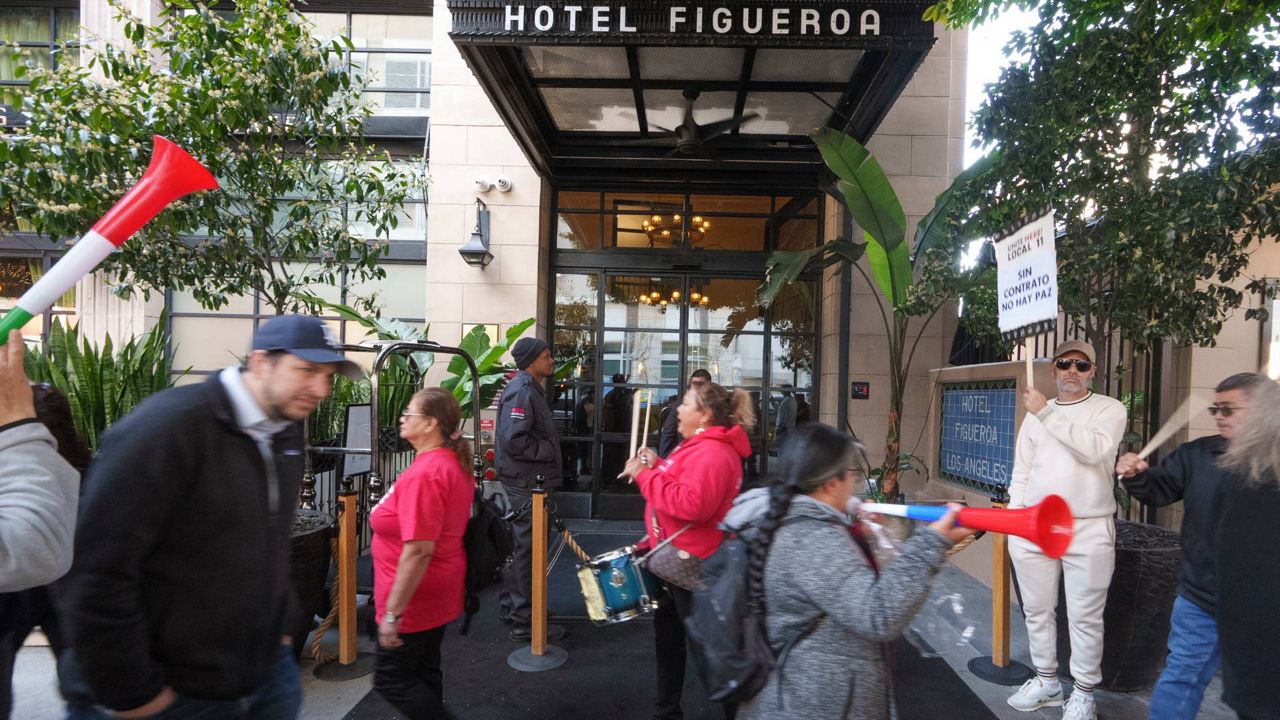EL SEGUNDO, Calif. — Do you remember the so-called "hot labor summer?" Well, it may have given way to tepid labor spring.
This week, UNITE HERE Local 11, the union representing more than 32,000 hospitality workers in Southern California and Arizona, announced its members overwhelmingly approved a new contract with several hotels.
The deal provides workers an average of 40% to 50% more than their current wages, and the new contract is good until January 2028.
Organizers say this will allow the union to renegotiate a new deal again before the LA 2028 Summer Olympics.
The big question is whether hotels can afford it, especially if tourists choose alternatives like Airbnb and Vrbo. And might hotels slash jobs if they can't absorb the extra costs?
Meanwhile, workers toiling away in places like hot warehouses have anxiously waited for California to adopt regulations requiring employers to either try to cool workplaces that get hotter than 87 degrees indoors or take other measures to reduce the risks of heat illness.
But at the last minute, there was a big wrinkle.
The Newsom administration raised concerns about the plan's cost, saying it would cost businesses billions at a time when many are struggling.
One business in particular is feeling the pinch: the state's prisons.
Initially, the Department of Corrections said the regulation would cost less than a million dollars in the first year of implementation and less than half a million each year after that.
However, in recent weeks, they informed the Department of Finance that the estimates are now in the billions — without providing specifics.
That triggered the Department of Finance to pull the necessary approval for the policy to go into effect this summer.
These rules have been in the making for more than five years, and the board of the California Division of Occupational Safety and Health wasn't having it with the 11th-hour objection.
The board unanimously approved it anyway, ahead of a weekend deadline, so that these rules could go into effect by summer.
The bigger picture is that California is a state that prioritizes its workers, their safety, and their ability to survive economically in a very expensive place.
But doing so often adds costs to businesses, and in a year where we're facing a massive deficit, these pressure points are sure to be with us for a while.



